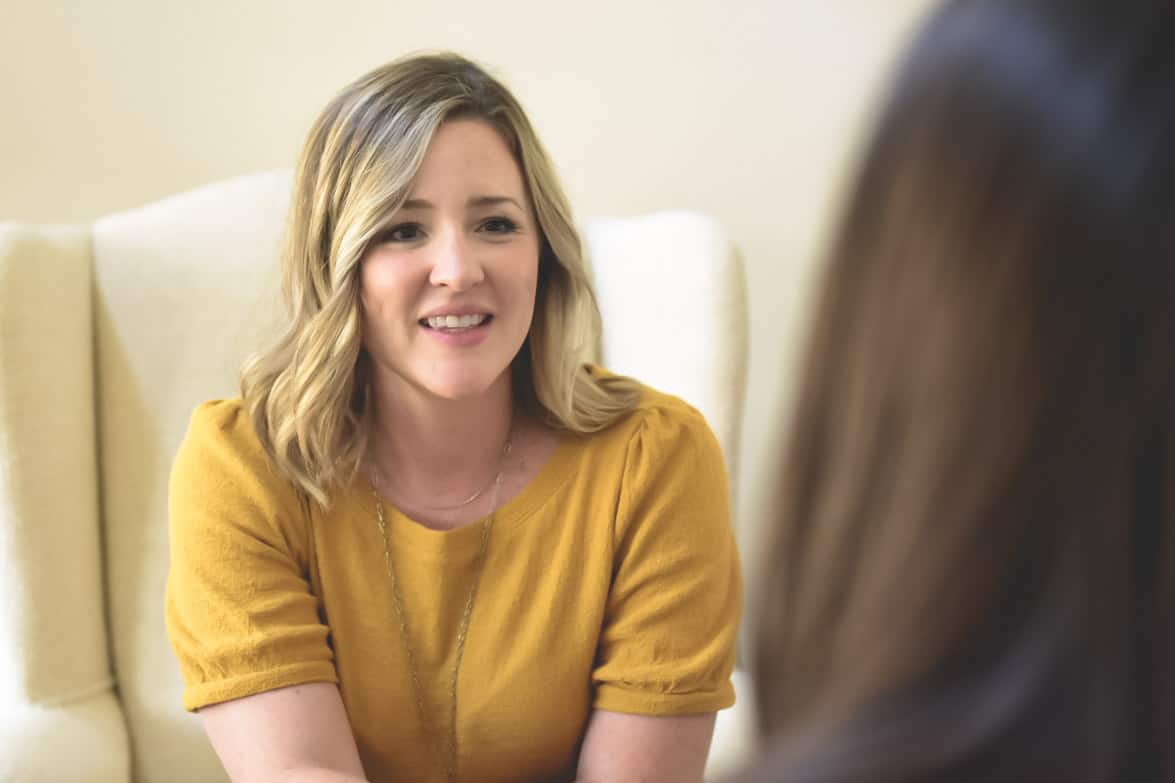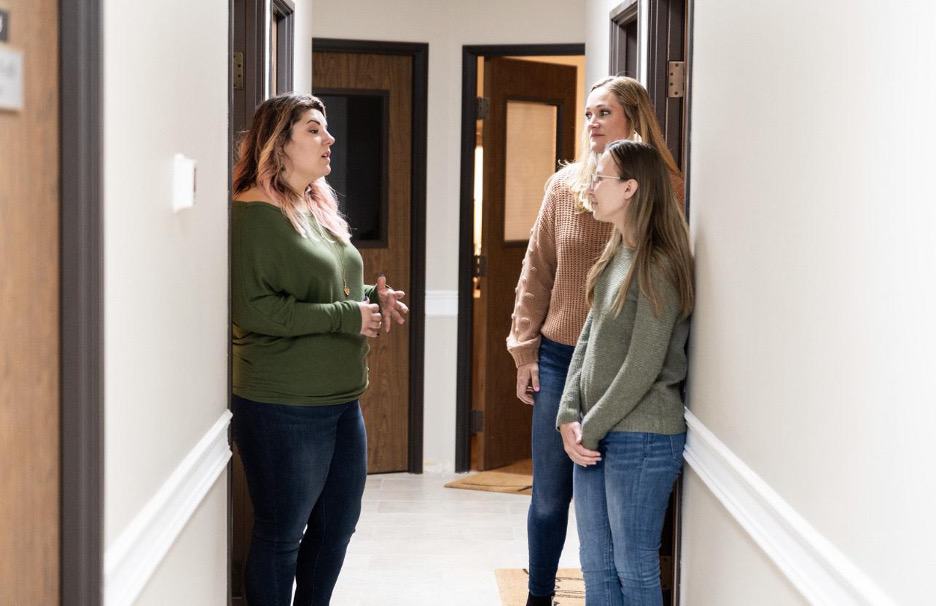Having a safe place to talk about your mental health and emotional stressors can be healing. At Stronger, we often say that you can start feeling better just by sharing your thoughts and feelings with someone else and getting them out of your own head. Furthermore, our clinicians believe that feeling seen, heard, and supported in therapy can be incredibly healing.
There are many signs that show your therapist cares about you and will support you in being your strongest self. Identifying these signs is essential in finding a therapist who is right for you.
1. They look you in the eye and lean in
When a therapist is maintaining eye contact instead of staring at a computer screen, it shows they are interested in what you have to say. This creates a more comfortable environment to feel listened to and heard. Whether you are meeting your therapist in-person or via telehealth, seeing that they are leaning in can send messages that they are interested, want to learn more about your story, or want to be physically closer to you in order to extend empathy.

2. They apologize when they make a mistake or might have misspoke
Therapists are human too! Sometimes our minds work faster than our words. As we often multi-task by thinking, planning, and organizing themes to help guide you through any concern you may have, we may sometimes misspeak or get ahead of ourselves. When we apologize for speaking out of turn or too fast, we want to be sure to do so in a way that doesn’t distract from your time in session, yet ensures that you know we messed up and will do better moving forward.
3. They validate and empathize with your pain
4. They champion your wins
Did you know that your therapist is just as excited as you are when we hear about your wins? Sharing that you were able to make it through an emotion with lessened anxiety or that you were able to sleep for just a few hours through the night always makes us want to cheer you on! Therapists love to celebrate these “little victories” and show you that this is progress!
P.S. Participating in a session when you think you have nothing to talk about is always a good idea! These are the sessions where we get to spend more time exploring your wins, strengths, and baseline emotions that are helpful for us to understand.
5. They hold space for you

6. The session is focused on you
We understand that making the phone call to come in to see a therapist is hard in itself! There is a time and place for your therapist to share stories about themselves as it relates to your story, but the main focus is you! We want you to know that you have the spotlight and that all of the conversations should be beneficial to you and your healing process.
7. They communicate their boundaries with you
It is important to build trust with each other during the first few sessions and develop rapport with your therapist. A relationship built on trust is the number one indicator for successful outcomes in therapy. And we know that honesty is the foundation for building and maintaining trust in relationships. At Stronger, we believe that trust should be mutual. As therapists, our goal is to help you through hardships and emotions but want you to know what our boundaries are. A few examples of these may include: talking about phone calls vs texts outside of session hours (we can’t be available 24/7 but also want you to know what to do and what support is available when we’re not). We want for you to be comfortable with the way we talk and the verbiage we use during sessions. Sometimes humor, swearing, or sarcasm can be helpful to lighten the mood or dig in in a safe way but other times it can be offensive or feel unsafe. Talking about these boundaries can help to keep the work we do healing.
8. They reach out to check in
We understand that an hour of your time may not be enough to create the healing environment you may be looking for once you start. When a therapist reaches out, it shows that they are thinking about your well-being and ensuring that you are doing okay after a session that may have been a bit more emotional than others!

9. They show up for you
You’re not just a number to us! Our therapists are excited to welcome you back into the office to get started and know when we need to be somber to lead you back because times are tough.
10. They talk with you instead of at you
Therapists’ main goal is to work with you and your goals! It’s likely that you already know what to do and how to get to a healthier and happier place but sometimes getting unstuck to make a move can be a challenge. A therapist’s goal is to never make you feel like you have to do what we talk about and only focus on that one thing or just aren’t ready to move towards the skills. We want to work with you, what you feel comfortable with, and are ready to learn new skills, adapt current ones, or even bring old favorites back. A therapist will never be upset when you let them know a certain skill isn’t working or just isn’t for you. These sessions are for you and they are here to help support you!
Bonus! They follow up on previous conversation topics
When a therapist asks about previous conversations, it shows that they are remembering key facts or pieces of information that are important to you. We care about how your trip went or how your child’s recital was! Therapists will also check in on previous conversations to remind you that every piece of information discussed is important and not just something to forget about.
We hope that you’ve seen a lot of qualities in your own therapist here or start to better understand what you might be looking for in a new therapist. If you’re local to Illinois or the tri-cities area and are ready to get started in therapy, our staff would love to be of help. We offer in-person and telehealth services.
Ready to get started with Stronger?
Click HERE to submit an inquiry to begin therapy with a therapist on our team.
We want our clients to
Understand Your Journey + Create Change + Feel Stronger
That’s our formula for helping you live an authentic life.
We know that Humans are complex and so is your story.
Your journey to wellness and strength doesn’t have to be scary to unpack and understand.
We think it can even be fun.
